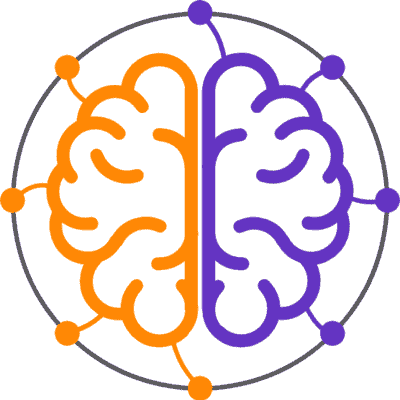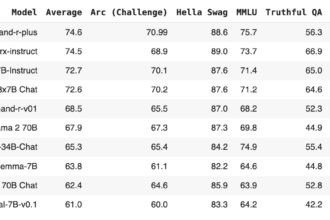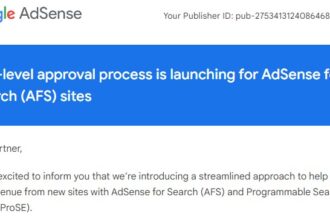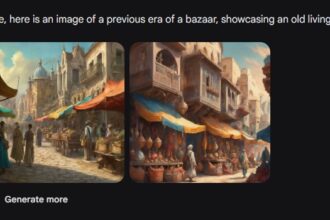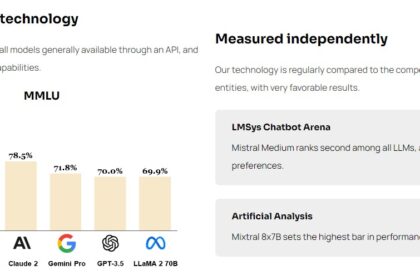What is a search engine?
A search engine is a tool that finds and ranks web pages based on user queries, providing relevant results on the search engine results page using crawling, indexing, and ranking algorithms. When a user enters a query into a search engine, it looks up the results in its database, sorts them and creates an ordered list of those search engine results pages (SERP) using a unique search algorithm, which ranks the web pages found by relevance.
Search engines vary in the way they work in their ranking. They often change their algorithms (the programs that rank results) to improve the user experience. Their goal is to understand how users search and give them the best answer to their question. This means that the most relevant and high quality pages are prioritized.
Although there are various search engines in the world, all of them share the same general principles of searching and providing answers.
Types of Search Engines
There are several types of search engines available on the internet, each serving different purposes and user needs. Here are some common types:
| Type of Search Engine | Description | Examples |
|---|---|---|
| General Web Search | Crawls and indexes content from websites across the web. | Google, Bing, Yahoo |
| Image Search | Helps users find images based on keywords or similarity. | Google Images, Bing Images, Pinterest |
| Video Search | Indexes and retrieves video content from various sources. | Google Videos, YouTube |
| News Search | Aggregates and presents news articles from multiple sources. | Google News, Bing News |
| Shopping Search | Enables users to search for products available online. | Google Shopping, Amazon |
| Academic Search | Focuses on academic papers, journals, and scholarly resources. | Google Scholar, Microsoft Academic |
| Social Media Search | Allows users to find posts, profiles, and content within the platform. | Facebook Search, Twitter Search |
| Job Search | Specialized in listing job opportunities from various sources. | Indeed, LinkedIn |
| People Search | Helps users find information about individuals, such as contact details. | Pipl, Spokeo |
How search engines work?
Search engines work by crawling, indexing and presenting hundreds of billions of web pages to serving them to you.
When a user enters a query into a search engine, web browsers, also known as robots or spiders, visit thousands, sometimes millions of pages in their index, choose the most relevant page (based on many factors), and give an answer to their user.
Search engines may differ from one another in their methods of providing answers to the user, but they are all built on 3 basic principles:
- Crawling
- Indexing
- Ranking
1. Crawling
The actual discovery of new web pages on the Internet begins with a process called crawling.
Search engines use small programs called web crawlers (sometimes called bots or spider bots) that follow links from already known pages to new pages that need to be discovered.
Each time a web crawler finds a new web page through a link, it scans its content and passes it on for further processing (called indexing) and discovers new web pages. continues to do.
2. Indexing
Once the bots have crawled the data, it’s time for indexing – the process of validating and storing content from web pages in a search engine database called an “index”. It’s basically a huge library of all the sites.
Your website must be indexed in order for it to appear on the search engine results page. Keep in mind that both crawling and indexing are continuous processes that occur frequently to keep the database up to date.
Once a web page has been parsed and stored in the index, it can be used as a search result for a potential search query.
3. Ranking
The final step involves selecting the best results and listing the pages that will appear on the results page.
Each search engine uses dozens of ranking signals and most of them are kept secret and not available to the public.
What is the purpose of search engine algorithms?
The goal of the search engine algorithms is to deliver a relevant set of high-quality search results that satisfy the user’s query/query as quickly as possible.
The user then selects an option from a list of search results and this action, combined with subsequent activity, then feeds into future learning that continues to influence search engine rankings.
Key Google ranking factors
Nobody knows every Google ranking factor because Google has not disclosed it. But we know a few of them. Let’s take a look at some of them.
Backlinks
Backlinks are links from one website page to another website. This is one of the most powerful Google ranking factors. This is probably why we saw such a strong correlation between linking domains and organic traffic in our study of over a billion pages. But it’s not just about quantity. Quality is also important. Pages with a few high-quality backlinks often outperform pages with low-quality backlinks.
Relevance
Relevance is the usefulness of a particular result to the researcher. Google has several ways to determine this. At the most basic level, it finds pages that contain the same keywords as the search query. It also looks at interaction data to see if others have found the result useful.
Freshness
Recency is a query-based ranking factor. This is extremely powerful for searches that require new results. That’s why you’re seeing the best score recently posted on “New Netflix Series” but “How to Solve a Rubik’s Cube”.
Page speed
Page speed is a ranking factor on desktop and mobile. But this is more of a negative rating factor than a positive one. This is because it negatively affects slow pages instead of positively affecting fast pages.
Mobile-friendliness
Mobile-friendliness has been a ranking factor on mobile and desktop ever since Google switched to mobile-first indexing in 2019. And Google personalizes search results for each user. It uses information like your location, language and search history to do this. Let’s take a closer look at these things.
Location
Google uses your location to personalize search results with local targeting. That’s why all results for “Italian restaurant” come from or about local restaurants. Google knows you’re unlikely to fly halfway around the world for lunch.
Language
Google knows that there is no benefit to showing results in English to Spanish users. This is why it categorizes translated versions of content (if any) for users who speak different languages.
Search history
Google saves what you do and the places you go, giving you a more personalized search experience. You can opt out of this, but most people don’t.
What happens when a search is performed?
When a user enters a query into a search engine, all pages deemed relevant are selected from the index, and an algorithm is used to classify these relevant pages sequentially into a set of results.
The algorithms used to rank the most relevant results vary between search engines. For example, a page may rank high for a query in Google, but it may not rank high for the same search in Bing.
In addition to the entered query, search engines use other relevant data to return results, including:
- Location – Some queries are location-based, for example “cafes near me” or “movie showtimes”.
- Detected language – Search engines will show results in the user’s language, if they can recognize it.
- Previous Search History – Search engines will return different results for the query depending on what the user searched for previously.
- Device used – A different set of results may be returned depending on the device from which the query was made.
Search engine optimization
In addition to providing useful information to users, search engines can also help brands promote their websites.
Optimizing your website to search for relevant queries is an important part of any internet marketing strategy, as it can increase the traffic on your web pages.
The sum of all the practices and techniques that website owners do to improve their search rankings is called search engine optimization (SEO).
If we want to simplify SEO, we can say that it all revolves around the 3 most important factors:
- Technical optimization
- Great content
- Quality backlinks
Most popular search engines
The most popular search engines are as follows:
1. Google
- Biggest and most popular search engine globally.
- Owned by Alphabet with over 90% market share worldwide.
- Sophisticated algorithms, effective crawling, indexing, and ranking.
- Powers other search engines like ask.com.
2. Microsoft Bing
- Second-largest search engine, owned by Microsoft.
- Holds a small market share compared to Google.
- Uses a special algorithm called Space Partition Tree And Graph for categorization.
3. Yahoo!
- Third biggest search engine with nearly 2% market share.
- Was once popular but overshadowed by Google over the years.
- Competes with smaller search engines like Bing and DuckDuckGo.
4. Yandex
- Popular in eastern countries, especially in Russia (over 60% market share).
- Offers various services beyond search, including Maps and Translator.
- Holds less than 1% of the overall search engine market share.
5. Baidu
- Dominant search engine in China (over 80% market share).
- Holds around 1% market share globally.
- Provides classic blue links and rich search results similar to Google.
How Search Engines Make Money?
There are two types of search results for search engines:
- Organic search results from the search index.
- Paid results from advertisers.
Search engines make money through various methods, typically following these points:
- Advertising: Displaying ads alongside search results, earning money from clicks or impressions.
- Keyword-based bidding: Advertisers bid on keywords, paying more for higher visibility.
- Sponsored listings: Paid placement at the top of search results for advertisers.
- Display advertising: Showing banner ads on web pages for additional revenue.
- Contextual advertising: Displaying relevant ads based on page content or user history.
- Affiliate marketing: Earning commissions by promoting products or services.
Each time someone clicks on a paid search result, the advertiser is paying the search engine. This is known as pay-per-click advertising (PPC), and that’s why market share matters. More users means more ad clicks and more earnings.
Conclusion
- The search engine consists of two main parts: the index and the algorithms.
- To build the index, the engine visits known pages and follows links to discover new pages.
- The search algorithm aims to provide the best, most relevant results.
- The quality of search results is important for building market share.
- No one knows all of the Google organic ranking factors.
- Key factors for ranking include backlinks, relevance, and refreshability.
- Google personalizes search results based on your location, language, and search history.
